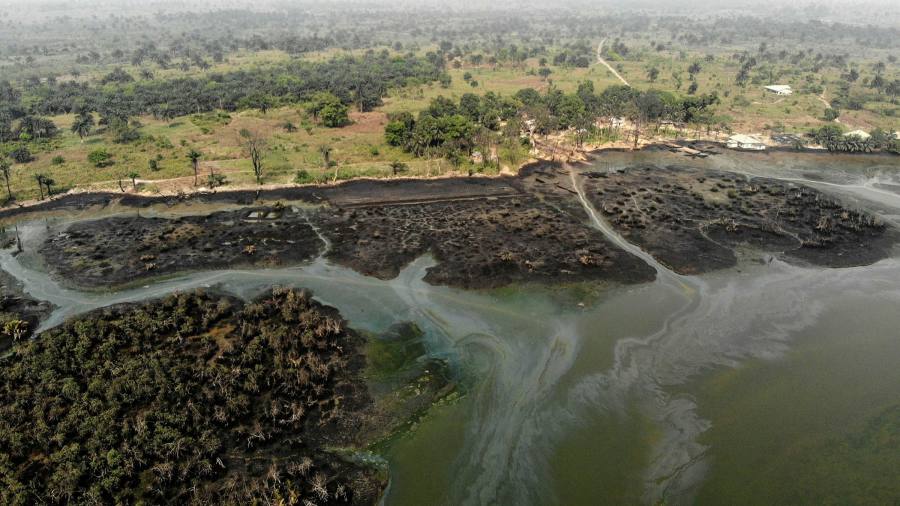[ad_1]
Royal Dutch Shell can be sued in London’s High Court in a lawsuit brought by thousands of Nigerian villagers over alleged pollution, Britain’s highest court ruled on Friday.
The Supreme Court said that around 50,000 people in two Nigerian communities could bring a lawsuit against Shell and its Nigerian division Shell Petroleum Development Company of Nigeria (SPDC) over alleged oil spills in the Niger Delta. It said the London parent company could legally be held responsible for the alleged actions of its subsidiary.
The Nigerian communities of Bille and Ogale claim they have suffered ongoing oil pollution issues for years because of Shell’s operations in the west African country, including the contamination of their drinking water. They want to sue Shell in London’s High Court, claiming the London parent company exercised significant control over its Nigerian subsidiary.Â
Shell has argued that the case should be heard by the Nigerian courts as the alleged damage took place in West Africa.
In Friday’s ruling, Supreme Court justice Lord Nicholas Hamblen said the top court had overturned an earlier decision by the Court of Appeal which had “materially erred in law†by conducting a “mini-trial†of the evidence.Â
The ruling will be closely watched because it could pave the way for more environmental claims to be brought in London’s High Court against large multinationals for their actions overseas.Â
While Shell is headquartered in the Netherlands, it has another major office in the UK and identifies as an Anglo-Dutch company. It has stock market listings on both the London Stock Exchange and the Euronext Amsterdam.
The judgment follows a victory for Nigerian farmers in the Netherlands where they successfully fought Shell in the Dutch courts in a long-running civil case. An appeals court in The Hague last month ordered Shell to pay damages to the farmers after finding the energy major’s Nigerian subsidy liable for oil spills in the Niger Delta more than a decade ago.
The UK case is one of a number that Nigerian residents have brought against Shell in recent years. Following last month’s Dutch decision, Mike Karikpo, a Nigeria-based attorney with Friends of the Earth International who is active in the Delta, said the organisation would help others pursue similar cases.
Shell said the ruling was “disappointingâ€. “The spills at issue happened in communities that are heavily impacted by oil theft, illegal oil refining and the sabotage of pipelines. Regardless of the cause of a spill SPDC cleans up and remediates,†the energy company said in a statement.
Daniel Leader, lawyer at Leigh Day representing the Nigerian villagers, welcomed the ruling. “We hope that now, finally, Shell will act. But it also represents a watershed moment in the accountability of multinational companies. Increasingly impoverished communities are seeking to hold powerful corporate actors to account and this judgment will significantly increase their ability to do so,†he said.
Twice weekly newsletter

Energy is the world’s indispensable business and Energy Source is its newsletter. Every Tuesday and Thursday, direct to your inbox, Energy Source brings you essential news, forward-thinking analysis and insider intelligence. Sign up here.
Last week Shell’s chief executive Ben van Beurden said the company needed to re-evaluate its onshore oil operations in Nigeria.
While the company has been criticised by villagers, activists and environmentalists for mismanaging assets that they say lead to environmental pollution, Shell maintains its operations continue to suffer from theft and sabotage.
“Our onshore oil position, despite all the efforts we put in against theft and sabotage, is under challenge,†he told reporters after announcing full-year results. “We have to take another hard look at our position in onshore oil in Nigeria.â€
[ad_2]
Source link





